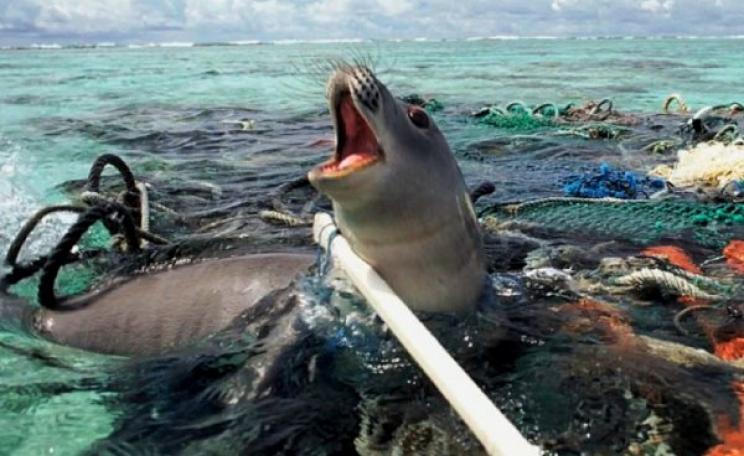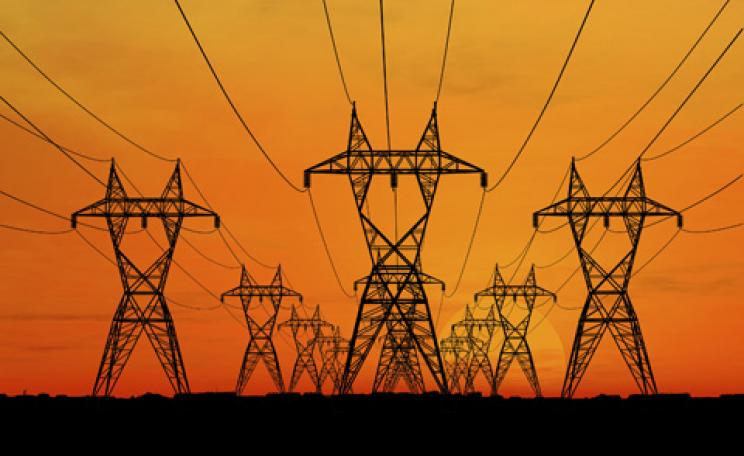Ecocide has always been a moral crime, but British lawyer Polly Higgins sees it differently: 'until it is legally a crime it's not going to be thought of as wrong. Banks are willing to put our money - public money - into some of the most destructive practices on the planet because they see nothing wrong with it.'
Higgins is leading a new campaign to have ecocide recognised by the United Nations as an international crime against peace. She defines ecocide as 'the extensive destruction, damage to or loss of ecosystem(s) of a given territory, whether by human agency or by other causes, to such an extent that peaceful enjoyment by the inhabitants of that territory has been severely diminished.'
With population growth and climate change, ecocide is increasingly likely to lead to resource wars. Hence, Higgins argues, it is a potential crime against peace and requires international action because of its capacity to be, in legalese, 'trans-boundary and multi-jurisdictional'.
Ecocide is all around us
Among current examples of ecocide are the Alberta tar sands, Amazonian logging, oceanic plastic pollution, damage from oil extraction in the Niger Delta, the Bingham Canyon copper mine in Utah and so on, along with more dispersed problems such as polluted waters, which Higgins claims 'account for the death of more people than all forms of violence including war'. Ecocide is now going on all over the world on an unprecedented scale.
Luckily, she says, many of the tools needed to prosecute such cases are already in existence. 'The International Criminal Court (ICC) was formed in 2002 to prosecute individuals for breaches of four Crimes Against Peace. They are: Genocide, Crimes Against Humanity, War Crimes and Crimes of Aggression.' A case can begin from something as small as a letter from a community or individual.
If ecocide laws are passed by the UN there will be many ramifications. The complementarity principle means that 'once something is put in as an international law, then each member state should put in their own national law to comply with it'. The ICC will step in if there is an inability or failure (individual countries may not want to challenge their extractive industries) to implement legislation on a national level. 'This sends a strong message that you can't lobby your way out of the situation,' says Higgins.
As well as the legal machinery, Higgins points to existing information-gathering networks in the form of NGOs, many of which are specialised to study and campaign on specific ecosystems. Working together they will be able to present comprehensive damage reports.
Spreading the word
Higgins has already had UN success with the Universal Declaration of Planetary Rights. The international climate negotiations last December were the moment she realised there was another gaping hole in current legislation: emphasis was still on finding financial values for ecosystems.
'The Copenhagen accord was a commodity document, a trading document; it has nothing to do with protecting people and planet and is absolutely not fit for purpose. We need a criminal law to deal with this. We shouldn't be negotiating over the biggest problem that's ever hit the planet. As someone who's dealt with family law, I know that two people in divorce court will never agree on anything - so how do you get 197 different countries with all their different vested interests and individuals to agree?'
She believes that governments need to move on from quibbling for short-term cash and put in place solid measures to enact a systemic shift.
Central to Higgins' campaign is bringing the term 'ecocide' into common parlance. The word has been in use since the late 1960s to describe the large-scale destruction of ecosystems. She believes its power can now be harnessed to inculcate society with the ideas it contains.
'We're giving people the language to make sense of what's going on. Once you start using the word, once it's embedded in your consciousness, you can actually start looking at things in terms of ecocide and ecosystems and systems thinking.' The incidence of the use of 'ecocide' as a term is increasing significantly online, so it looks like awareness and understanding are rising. And thanks to BP, of course, the public has been given a very tangible example of it in real time.
Corporate obstacles
On the journey to becoming law, one of the biggest obstacles an ecocide declaration will face is the corporate lobby. Everything possible will be done to persuade world leaders that criminalising ecocide will be seriously bad for business. But Higgins maintains that there is more positive opportunity ahead than anything else. She cites the abolition of slavery as a scenario where - despite vehement opposition - radical change was enforced and most businesses did not in fact collapse but began trading in less brutal commodities or became 'the police of the seas'. She observes that destructive corporations tend to reinvent themselves as 'restoration corporations'.
This idea of 'restorative justice' is key to her plan of how we can move forward into a more mature relationship with the earth, recognising our interdependence with our planet. The inadequacy of financial penalties as a deterrent against megapolluters like BP has already been reported. As with carbon credits, monetary reparations serve to abstract the problem and distract from what actually needs to be done. Restorative justice means that the perpetrators of environmental crimes would have to make amends for those crimes directly themselves.
For example, oil companies would have to reconstruct the Niger delta piece by piece after decades of abuse. Soil, vegetation, watercourses, air quality, fauna - all aspects of the depleted ecosystem would have to be addressed. What we would have is a sort of global community service.
'This is really about shifting the emphasis away from corporate interests to the community realm. If you think you can just get away with it by paying a fine then that's what you do - you don't take responsibility for it; but if in fact you're going to have to spend an awful lot of time and effort and energy in putting things right then that becomes a major headache'.
So fundamental is this shift to restorative justice that Higgins suggests that anything that attracts a fine for damage to the environment should have restorative justice measures attached to it too, not just ecocide.
Ecocide laws in practice
Ecocide has an advantage over human rights abuse claims in that it's often easier to prove. If a soil or water sample is contaminated then it's an immediate victory for planetary rights. With ecocide the 'burden of proof' would be on corporations to show that they haven't damaged a given ecosystem.
So how would the new ecocide laws be applied? First, we would have a transition period for a shift to new methods. This should be as short as possible (Higgins thinks two years would be sufficient). Subsidies propping up damaging practices would be pulled, and new subsidies encouraging good practice and innovation would be offered. (Slavery was similarly heavily subsidised - the subsidies were removed and businesses were given new subsidies to do new things.)
After the transition period, businesses that have failed to modernise will be shut down. States may allow a certain amount to remain in operation through necessity (for example, a few old-fashioned power plants if not enough clean energy is yet available to match demand). It would then be legally untenable for corporations to continue business-as-once-usual. The approach offers the stick of criminality and carrot of opportunity.
So will all mining and deforestation wind down and ultimately stop with the criminalisation of ecocide? It needn't necessarily, says Higgins - it all depends on your approach. 'For example, if you're mining, but at the same time restoring the land that you're mining out of, it will push for new processes to be invented that are less destructive,' she says. 'The question is: "how do we create an extractive industry that isn't damaging or destructive or that causes loss of ecosystems?" I bet you it can be done.'
The text for ecocide will be presented to the UN next January. It needs a two-thirds majority vote to be passed. Send a letter to your political representative requesting that ecocide be made a crime.
Stop the Ecocide: the 5th Crime Against Peace by Polly Higgins (£14.99 Shepherd Walwyn) will be published in September
| READ MORE... | |
 |
INVESTIGATION Visionaries: Polly Higgins ‘The planet is currently enslaved to humans abusing its inherent rights – the right not to be enslaved or polluted,’ says environmentalist and barrister Polly Higgins. |
 |
NEWS ANALYSIS BP oil spill: can environmental crime ever be made to pay? Million dollar fines and compensation claims may dent the profits of BP and other companies admitting responsibility for ecological disasters but, on their own, are they enough of a deterrent? |
 |
HOW TO MAKE A DIFFERENCE 10 groups campaigning for the natural world Breathable air, healthy soil, fresh water and the stability of our climate all rely on our planetary life-support systems – like rainforests and oceans – being healthy. |
 |
HOW TO MAKE A DIFFERENCE Enshrining legal rights for the planet Just as the humanitarian crisis of the Second World War gave birth to the swift implementation of the Universal Declaration of Human Rights 60 years ago in 1948, we now have a planetary crisis that needs to be addressed with equal urgency. Now is the time to call for a Universal Declaration of Planetary Rights. |
 |
NEWS VIDEO: why tar sands activists took on BP A report from BP's recent AGM where activists fought to raise awareness of the oil giant's investment in tar sands - includes an interview with George Poitras, member of Mikisew Cree indigenous First Nation |








